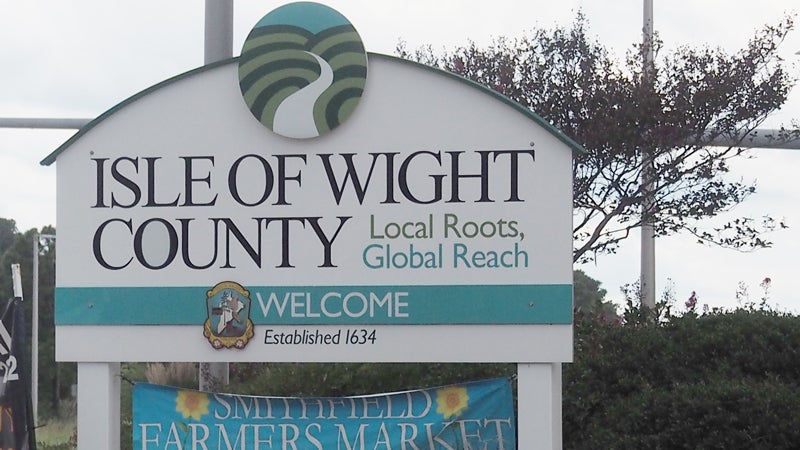Isle of Wight defers vote on three-year reassessment to October
Published 5:07 pm Wednesday, September 25, 2024

- FIle photo
Isle of Wight County supervisors will wait until October to decide whether to switch to a three-year cycle for reassessing real estate tax valuations.
Currently, the county reassesses property values every four years. When it last did so in 2023, a 34% average rise in single-family home valuations cost many homeowners several hundred dollars more on their real estate tax bills.
Commissioner of the Revenue Gerald Gwaltney proposed the three-year cycle in August as a means of lessening the sticker shock come 2027, but at least one supervisor isn’t sold on the idea.
“If we’re forced to vote tonight, my answer’s no,” Supervisor William McCarty said at the board’s Sept. 19 meeting following a public hearing on the proposal.
The hearing drew only one speaker, Shelly Perry, who was also skeptical of the change.
A three-year cycle would mean beginning the reassessment process in early 2025, Gwaltney said. New valuations would take effect July 1, 2026.
Gwaltney said delaying a decision until October would “tighten the schedule” but “does not make it impossible.”
Gwaltney, in August, said the reassessment process typically begins a year in advance with the county soliciting bids and choosing a third-party appraiser. Going back to 2002, the county has awarded the job to Daleville-based Wampler Eanes, one of four firms in the state certified by the Virginia Department of Taxation to perform mass appraisals.
During last year’s reassessment, a team from Wampler Eanes visited every “improved” property, which refers to parcels of land containing any form of structure. The team then valued what was built using nationwide Marshall & Swift construction cost tables, and based on those results, defined 181 separate “neighborhoods,” Gwaltney said.
The Gatling Pointe development just outside Smithfield, for example, is divided by Battery Park Road into Gatling Pointe North and Gatling Pointe South. The homes in Gatling Pointe North are older than the ones in Gatling Pointe South and include waterfront properties; as such the two phases of the same development are considered different neighborhoods for assessment purposes. Recent sale prices then determine what percentage increase is applied to the valuation of homes in each neighborhood.
Gwaltney, at the Sept. 19 meeting, said the county paid Wampler Eanes roughly $500,000 for the 2023 reassessment. It would likely spend the same or higher in 2025 if the supervisors approve a new reassessment that would take effect in 2026.
But a new reassessment could also generate new revenue for the county.
Gwaltney, in August, said the 2023 reassessment produced valuations at a 97% “sales ratio,” which refers to the gap between a home’s assessed value and sale price. A 97% sales ratio, he’d explained, means a house valued at $97,000 would sell for $100,000.
Part of what drove last year’s 34% average rise in single-family home values, Gwaltney said, were bidding wars over Isle of Wight’s limited supply of for-sale homes, resulting in many selling for well above asking price. This trend has continued into 2024, according to data Gwaltney presented to the supervisors.
As of July of this year, Isle of Wight’s sales ratio had fallen to 89%, which Gwaltney said means homes are selling for roughly 8% more than they were in mid-2023.
In addition to its impact on real estate tax revenue, the sales ratio plays a direct role in the revenue the county receives annually from public service corporation taxes.
Certain types of real estate, such as assets owned by utilities like Dominion Energy, pay public service corporation taxes that are calculated by the state based on a locality’s sales ratio. The county’s adopted 2024-25 budget states the 2023 reassessment increased Isle of Wight’s sales ratio 26% over 2022, and projects the 2024 ratio will increase 33% over 2023, resulting in $1.5 million in public service corporation tax revenue for the 2024-25 fiscal year.





